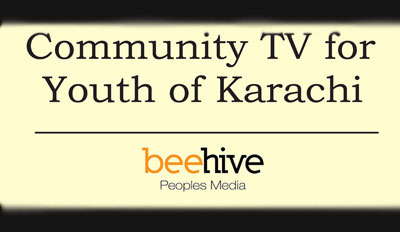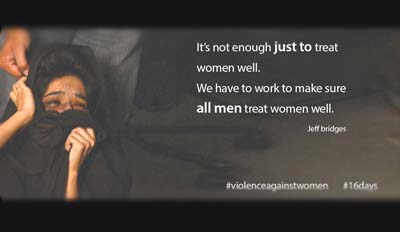Desperate times calls for imprudent measuress
By Kaukab Tahir Shairani
4 April 2016
KARACHI: The rising instability in Karachi has led to an increase in the number of residents carrying private arms. They purchase their own weapon in an attempt to make themselves safer.Over the past few years, Karachi has plunged into a blanket of unease, whereby the residents of the city have suffered enormously owing to the precarious security situation. The safety situation of this city, more like a security “crises” has led to many residents being mugged. The rising street crime that usually sets in after dusk, and lasts till the young hours of morning, has posed a constant threat upon every soul who is outdoors during this time.
Residents have not only suffered mugging, but this has worsened as far as life deprivation. Street crimes have led to on-spot killings. A lot of times, robbers, in an attempt to mug the person, end up shooting them. This happens when the victim resists. Also, women have witnessed an increasing challenge in moving freely across the city. Increased incidents of kidnappings of minors and women have made them fearful of going to certain areas and even driving with ease. This has brought a significant drop in the number of female drivers in Karachi. Most women commute with drivers, or with a male member.
DAWN News reported that death toll in 2014 rose to 3142; 78 of these were children. This includes target killings; and on-spot deaths caused by street crimes. Statistics have also shown that figures were at a constant rise from 2008 to 2014. Thereafter, residents of Karachi resorted to carrying a private sidearm while they commute. Due to the increase in demand, inflation and taxes over the last five years, the prices of arms have doubled.
Saad Bin Hilal, a resident of Karachi said, “I brought a Taurus over two years ago because I felt threatened by security. I have a designated path to my office and back, and I felt the need to carry a weapon because I felt someone might be following me.” He said that he had to fill in an application form to the Home Department and required the approval of the District Coordination Officer (DCO) to be issued a license to carry an arm. “I approached the DCO through an arms dealer, who acted as his agent. The government’s fee is five thousand rupees but the dealer charged me a much higher price, somewhere between 20 to 30 thousand rupees,” added Hilal.
The owner of Salar, a security company, and also a registered arms trader (Name has been concealed upon request) said that being a dealer he would recommend carrying a weapon and in that case, a 9mm is the best buy as it is handy and can be conveniently bought from the market. However, he emphasized, “One should be mature enough to understand the ramifications of using it irresponsibly and hence we only cater to customers with strong references.”
The price of arms varies depending on their origin. A Pakistani 9mm normally costs around 30 thousand rupees; whereas an American glock can be bought at a minimum of four hundred thousand rupees. Arms dealers offer repair and maintenance of the weapons, depending upon the type of malfunction. However, basic maintenance can be done at home. Usually after 50 rounds, it is advised to clean and oil the weapon to do away with the impact of obsolescence and wear and tear.
Owner of Salar also highlighted, “All arms dealers are under the scanner since the start of operation. Therefore, we cater to customers with strong references. To ensure their authenticity, we do our critical checks.” He also said that dealers have to be sure who they are selling the weapon to, and what the customer may use it for.
The public of Karachi has found carrying a sidearm as an effective means to fasten security for them and their families. However, since the onset of Waziristan Operation, getting approval from the Home Department to carry a weapon is at their discretion. Some people may be given a license, while some are rejected, depending on their credibility. The Defense Ministry of Pakistan has tightened checks on arms dealers, and buyers to avoid malpractice and illegal trading of weaponry. Despite these checks, a black market exists for weapons at a large scale in Pakistan.
“Dera Adam Khel is the infamous gun manufacturing den in Pakistan. The whole network of black market operates from that place,” said an ex-Major General (Name has been concealed upon request). He also told that more weapons are being smuggled into Pakistan via Afghanistan and Waziristan. In a city like Karachi, Sohrab Goth and Lyari are the most prominent areas to get a weapon from the black market.
Arms in the black market are available at considerably lower prices, but that is not the sole intent of it. Most people who purchase through the black market have condemnable motives. Since arms dealers have gotten wary of such customers, the black market in this country has expanded substantially. Nonetheless, genuine customers are still entertained, or in that case, those who purchase weapons with the intent of enhancing their safety, have to reach dealers via trustworthy references.
Bilal Iftikhar, a resident of Karachi said, “I do not currently carry a weapon. But I would not mind carrying one in case of feeling threatened.” He said that he feels relatively safer since the onset of 2015, ever since the moratorium on death penalty has been lifted and the government has executed offenders of heinous crimes like murder. “I personally feel that carrying a weapon is one thing, but using it is another. A sane, law abiding citizen, in my opinion, would not be able to use his weapon in case he encounters a life-threatening situation upon himself,” added Iftikhar.
Therefore, to combat mugging situations in Karachi, many residents carry a sidearm. However, not all use it. Very rare is the need to actually use the weapon because mostly, only revealing your weapon to the robber cures the danger. The hazards of carrying a weapon are greater in Pakistan than in other places due to the corruption of the Police. “If a citizen uses a weapon in self-defense, he is required to first reveal it to the Police with honesty, and later, if need arises, in the court of Law,” said retired Brigadier Bashir Arain. “The sad part in this country is that the Police is extremely corrupt, and hence becomes the means to most crimes. Therefore, if anyone uses their weapon, they are bribed by the Police for money to rest their case.” In addition, if such a case goes into the court, the accused is only set free if he is able to prove that the act was committed in self-defense. Otherwise, they may bear consequences of 302 (punishment of qatl-i- amd) as stated by the Penal Code of Pakistan.
“The rate of street crime is considerably less in Khyber Pakhtunkhwa (KPK) and Federal Administered Tribal Areas (FATA) because the offender knows that the other party would also have a weapon,” added ex-Brigadier Arain. Likewise, in Karachi, with the increase of citizens carrying a sidearm, robbers started realizing that victims with a private arm are good to go.
Thus, while a weapon provides a sense of security to a resident, it may also prove otherwise. One of the challenges faced by citizens is during imposition of Section 144 of the Penal Code of Pakistan, which prohibits any citizen to carry a weapon that may cause death; implications of which may include imprisonment up to two years, or a fine. Currently, Karachi is in effect of a 90-day ban of display of weapons under Section 144 since August 24, 2015, when the Provincial Home Department issued a notification.
“In case a resident wishes to carry a weapon under Section 144, they have to seek a permit from the Ministry of Interior,” stated ex-Brigadier Arain. “The Ministry of Interior and the Home Department, however, reserve the right to cancel this permit at any time.” Licenses for carrying arms may come with certain restrictions as they are issued for a particular city, district, or province unless someone obtains a license to carry their weapon across the country.
Another limitation of carrying a weapon for a common man is that only a certain range of arms are allowed. For instance, a civilian, most likely is not allowed to purchase a Kalashnikov. The Ministry of Commerce differentiates this as a list of prohibited and non-prohibited weapons. The range of what falls under prohibited and non-prohibited may be amended at any time by the concerned authorities. These laws differ for civilians, government officials mainly Police, and Army Officers. Therefore, if someone is caught with a prohibited weapon, it may qualify for an offence.
The perturbing security situation in Karachi has compelled many citizens to start carrying weapons for their safety. However, the reinstatement of death penalty after the APS (Army Public School) Attack of December 16, 2014 has considerably helped the security of the city. Despite this change, many citizens continue to purchase weapons and carry them.
It looks like the long instilled fear among Karachiites will take a while to evade, depending on how much the security improves for them, and how long it lasts. They say, “Desperate times call for desperate measures,” but the question that we should ask ourselves is: Are we walking a healthy road?








